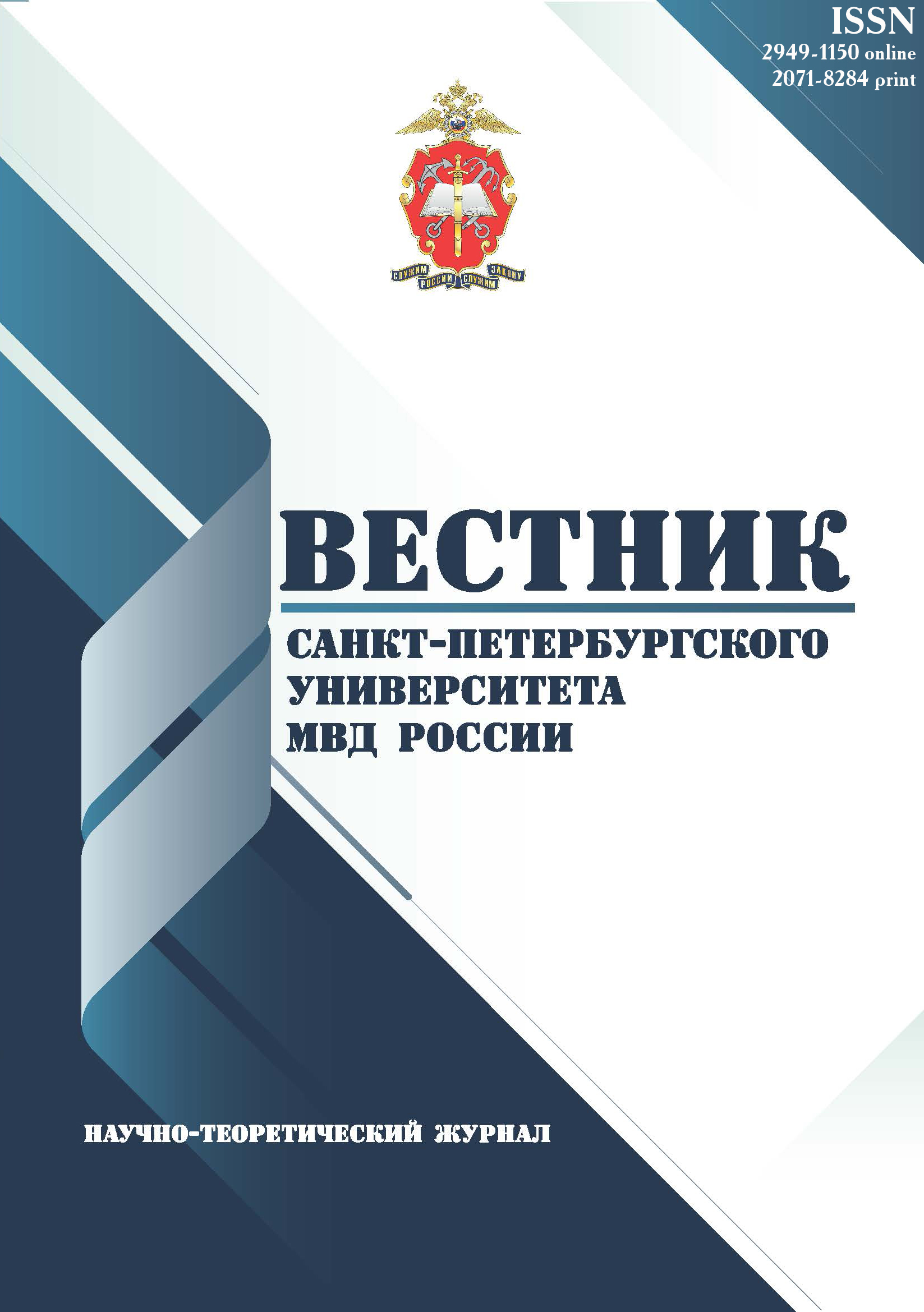Russian Federation
Russian Federation
UDC 378
Introduction. The authors substantiate the increasing role of propaganda work with employees of internal affairs bodies (hereinafter - IAB). The peculiarities of the modern period of propaganda work, such as diversity of information sources, diversity of opinions and assessments of social and political events, purposeful dissemination of unreliable and hostile information are discussed. Professional development of future and current propagandists is considered as an important form of increasing the effectiveness of propaganda in working with personnel in IABs. Methods of research. Analysis of scientific literature, normative legal acts regulating outreach work (hereinafter - IPR) with IAB personnel. Results. The study has shown the need to improve the qualifications of propagandiss in the conditions of modern information society. The authors propose five directions for improving the professional development courses for employees responsible for IPR in IAB. These are clarification of the content of the concepts of information and propaganda, identification of socio-psychological conditions of propaganda effectiveness, research of psychological conditions of perception of propaganda materials, forms and methods of IPR, pedagogical support of counterpropaganda and the fight against fakes. Conclusion. The analysis of the areas for improving the professional development courses for the staff of personnel relations units that carry out IPR at internal affairs bodies has shown significant changes in the conditions in which propaganda work is carried out. There is an objective need for training, retraining and professional development of propagandists. The discussed areas of improving propaganda work in IAB units can become a material for methodological recommendations and independent work of the staff carrying out IPR.
outreach work, IAB personnel, propaganda, directions for professional development courses
1. Grebenyuk A. I., Danakin N. S. Propaganda i ideologiya v vysshem obrazovanii kak social'nyy aspekt obespecheniya nacional'noy bezopasnosti Rossiyskoy Federacii // Izvestiya Yugo-Zapadnogo gosudarstvennogo universiteta. Seriya: Ekonomika. Sociologiya. Menedzhment. 2020. T. 10, № 2. S. 208–219.
2. Mihaylov S. G. Vospitanie molodezhi i novoe kachestvo pedagogicheskih rabotnikov // Teleskop: zhurnal sociologicheskih i marketingovyh issledovaniy. 2021. № 1. S. 53–64. https://doi.org/10.51692/1994-3776_2021_1_53.
3. Karepova S. G., Nekrasov S. V., Pinchuk A. N. Propaganda kak metod vozdeystviya na obschestvennoe soznanie: obschiy teoreticheskiy aspekt // Vestnik NGUEU. 2020. № 4. S. 212–229. https://doi.org/10.34020/2073-6495-2020-4-212-229.
4. Mel'nikova T. S. Propaganda kak tehnologiya politicheskogo manipulirovaniya // Vlast'. – 2010. – № 8. – S. 47–51.
5. Chernikov M. V., Avdeenko E. V. Manipulyaciya kak instrument propagandy // KANT. 2023. № 2 (47). S. 245–251. https://doi.org/10.24923/2222-243H.2023-47.44.
6. Barabanov R. E. Psihologicheskie sposoby vozdeystviya: obzor problemy // Byulleten' nauki i praktiki. 2017. № 5 (18). S. 262–270.
7. Antonova O. G. Manipulyaciya kak fenomen informacionnogo obschestva // Izvestiya Saratovskogo universiteta. Novaya seriya. Seriya: Sociologiya. Politologiya. 2023. T. 23, № 3. S. 289–293. https://doi.org/10.18500/1818-9601-2023-23-3-289-293.
8. Radchenko L. E. Vliyanie informacii na nravstvennoe, psihicheskoe zdorov'e i vospitanie podrastayuschego pokoleniya // Materialy Afanas'evskih chteniy. 2016. № 1 (14). S. 215-223.
9. Lazutina G. V. Social'naya rol' zhurnalistiki v kontekste sovremennyh diskussiy // Vestnik Moskovskogo universiteta. Seriya 10: Zhurnalistika. 2016. № 6. S. 178–191.
10. Tulupov V. V. Professional'nye standarty, roli i destrukturizaciya v zhurnalistike // Vestnik Kostromskogo gosudarstvennogo universiteta im. N. A. Nekrasova. 2014. T. 20, № 7. S. 214–219.
11. Mironkina O. N. Metodika osvoeniya norm antikorrupcionnogo zakonodatel'stva v sisteme povysheniya kvalifikacii sotrudnikov organov vnutrennih del // Uchenye zapiski universiteta im. P. F. Lesgafta. 2019. № 3 (169). S. 210–216.
12. Malahova S. I. Krivaya normal'nogo raspredeleniya i obschestvo massovoy demokratii // Social'no-gumanitarnye znaniya. 2019. № 6. S. 222–231.
13. Kudel'kina N. S. Vospriyatie mnogoznachnoy informacii kak predmet psihologicheskogo issledovaniya // Vestnik Sankt-Peterburgskogo universiteta. Seriya 12: Psihologiya. Sociologiya. Pedagogika. 2008. № 4. S. 268–276.
14. Kravcun I. A. Naglyadnye sredstva informacii kak forma informacionno-propagandistskoy raboty s lichnym sostavom v organah vnutrennih del / Sankt-Peterburgskie vstrechi molodyh uchenyh : materialy II vserossiyskogo kongressa, g. Sankt-Peterburg, 11 iyunya 2024 g. Sankt-Peterburg : Sankt-Peterburgskiy universitet MVD Rossii, 2024. S. 84–88.
15. Manoylo A. V. «Feykovye novosti» kak ugroza nacional'noy bezopasnosti i instrument informacionnogo upravleniya // Vestnik Moskovskogo universiteta. Seriya 12: Politicheskie nauki. 2019. № 2. S. 37–45.
16. Ivanischeva O. N. Feyki kak raznovidnost' social'noy informacii // Chelovek. Kul'tura. Obrazovanie. 2020. № 1 (35). S. 63–73. https://doi.org/10.34130/2233-1277-2020-1-63-73.
17. Nezhkina L. Yu., Dushkin A. S. Rasprostranenie feykov kak sposob manipulirovaniya obschestvennym soznaniem v internet-prostranstve // Rossiyskiy deviantologicheskiy zhurnal. 2024. № 4 (2). S. 237–249. https://doi.org/10.35750/2713-0622-2024-2-237-249.














